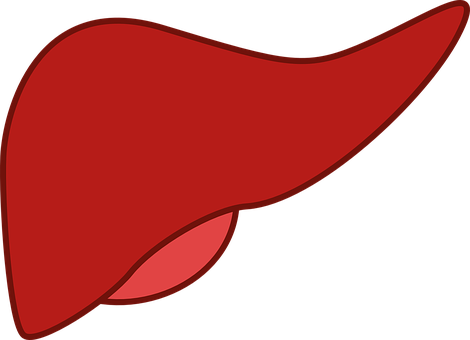Introduction to liver friendly foods:
Liver friendly foods are those that promote the health and function of your liver. These foods can help protect your liver from damage and support its natural detoxification processes. Some liver friendly foods include: To know more about fatty liver, read this article, https://sparklinglifestyle.in/fatty-liver-10-tips-to-reverse-it/#

- Coconut water:
Coconut water is often considered a liver friendly food due to its hydrating and electrolyte replenishing properties. It can help maintain proper hydration levels, which is important for overall liver function.
Additionally, coconut water is a good source of potassium which may aid in regulating blood pressure and potential reduce the risk of liver damage associated with hypertension.
However, it is important to consume it in moderation and as part of a balanced diet, as excessive consumption of any food or beverage can have negative health effects.
- Garlic and turmeric:
Garlic contains allicin, a compound that has antioxidant and anti-inflammatory properties. These properties may help protect the liver from oxidative stress and inflammation. Garlic is also believed to support the body’s natural detoxification processes.
On the other hand, Turmeric contains curcumin, a natural anti-inflammatory and antioxidant compound. Curcumin has been studied for its potential to protect the liver from damage and support its regenerative abilities. Turmeric may also aid in preventing fat accumulation in the liver, which is important for the liver health.
- Whole grains: (Legumes, millets, beans such as soy chunks, rajma (kidney beans) and chick peas):
Whole grains are rich in dietary fiber, which can help in maintaining a healthy weight and managing cholesterol levels. Excess weight and high cholesterol can contribute to non-alcoholic fatty liver disease. The fiber in whole grains also aids in digestion and regular bowel movements, indirectly benefiting liver function.
In addition, Whole grains like brown rice, whole wheat and quinoa contain essential nutrients such as vitamins, minerals and antioxidants that support overall health, including liver health.
Moreover, whole grains have a lower glycemic index compared to refined grains, which means they lead to more stable blood sugar levels. This can be beneficial for people with insulin resistance and may reduce the risk of non-alcoholic fatty liver disease.
Furthermore, whole grains have a lower glycemic load, which means they release glucose into the bloodstream more slowly, providing a steady source of energy and helping prevent spikes in blood sugar.
- Broccoli, cauliflower, and cabbage:
These cruciferous vegetables contain compounds like glucosinolates, that support the liver’s detoxification processes. They help the liver in breaking down and removing toxins from the body.
Moreover, they are rich in antioxidants such as vitamin C and various phytonutrients, which protect liver cells from oxidative damage and inflammation.
In addition, cruciferous vegetables are good sources of dietary fiber, which aids in digestion and helps maintain a healthy weight. This, in turn, can reduce the risk of liver conditions like non-alcoholic fatty liver disease.
- Green tea or matcha tea:
Green tea and Matcha are rich in antioxidants, particularly catechins, which help protect liver cells from oxidative damage and inflammation.
Moreover, some studies suggest that the consumption of green tea, including Matcha, may help reduce fat accumulation in the liver, which is beneficial for liver health. This can be especially relevant for people with non-alcoholic fatty liver disease.
Furthermore, the compounds in green tea and Matcha have anti-inflammatory properties that can benefit the liver and overall health.
Additionally, Green tea and Matcha can support weight management and maintaining a healthy weight is important for liver health, as excess weight can contribute to liver conditions.
- Oatmeal:
Oatmeal is a good source of dietary fiber, particularly soluble fiber called beta-glucans. This fiber can help regulate cholesterol levels and reduce the risk of non-alcoholic fatty liver disease by managing weight and improving insulin sensitivity.
In addition, oatmeal is rich in essential nutrients like vitamins, minerals and antioxidants that contribute to overall health, including liver health.
Moreover, oatmeal has a low glycemic index, which means it leads to gradual and steady increases in blood sugar levels, making it a suitable choice for those concerned about blood sugar regulation and its impact on the liver.
Furthermore, oatmeal can help you feel full and satisfied, which may support weight management, an important factor in maintaining healthy liver.
- Coffee (premium quality):
Premium quality coffee when consumed in moderation may have some potential liver friendly benefits. Coffee is rich in antioxidant, such as chlorogenic acids, which can help protect liver cells from oxidative damage.
In addition, some research suggests that moderate coffee consumption is associated with a reduced risk of liver disease, including liver cancer, cirrhosis, and non-alcoholic fatty liver disease.
Moreover, coffee may have anti-inflammatory properties, which can be beneficial for overall health, including liver health.
- Almonds and walnuts:
Both almonds and walnuts are rich in monounsaturated and polyunsaturated fats. They are considered heart- healthy and can be beneficial for overall health, including liver health.
In addition, these knots contain antioxidants such as vitamin E, which can help protect liver cells from oxidative damage.
Moreover, Almonds and walnuts are packed with essential nutrients, including vitamins, minerals, and fiber, which support overall well-being.
Furthermore, incorporating nuts like almonds and walnuts into your diet may help promote satiety and weight management, which is important for liver health, as excess weight can contribute to liver conditions.
- Sunflower and pumpkin seeds:
Sunflower and pumpkin seeds contain healthy fats, including monounsaturated and polyunsaturated fats, which are beneficial for overall health, including liver health.
In addition, both seeds are rich in antioxidants such as vitamin E, which help protect liver cells from oxidative damage.
Moreover, these seeds are excellent sources of essential nutrients such as vitamins, minerals, and fiber, which contribute to overall well-being.
Additionally, they provide a source of plant-based protein, which can be healthy addition to your diet.
Furthermore, incorporating seeds like sunflower and pumpkin seeds into your diet can help promote satiety and weight management, which is essential for liver health.
- Green peas and spinach:
Both green peas and spinach are rich in essential vitamins, minerals and antioxidants that support overall health, including liver health.
In addition, these vegetables are good sources of dietary fibers, which aids in digestion, promotes regular bowel movements, and can help maintain a healthy weight. Managing weight is important for liver health.
Moreover, Green peas and spinach are low in calories and can be included in a calorie-controlled diet, which is important for people with liver concerns such as non-alcoholic fatty liver disease.
Additionally, spinach, is rich in antioxidants like vitamin A and C, which can help protect liver cells from oxidative damage.
- Extra virgin olive oil:
Extra Virgin Olive Oil is rich source of Monounsaturated fats, which are considered heart-healthy and can be beneficial for overall health, including liver health.
In addition, it contains antioxidants such as vitamin E and phenolic compounds. They can help protect liver cells from oxidative damage.
Moreover, Extra Virgin Olive Oil has anti-inflammatory properties that may benefit the liver and overall wellbeing.
Furthermore, incorporating this oil into your diet may support weight management and important factor in maintaining healthy liver, as excess weight can contribute to liver conditions.
- Blueberries, papaya, and tomatoes:
These three fruits are rich in antioxidants such as vitamin C and E, which can help protect liver cells from oxidative damage.
In addition, they contain anti-inflammatory compounds, which can be beneficial for liver health and overall well-being.
Additionally, blueberries, Papaya and tomatoes are packed with essential vitamins, minerals, and fiber, which contribute to overall health.
Moreover, including these fruits in your diet can help promote satiety and weight management, which is important for liver health, as excess weight can contribute to liver conditions.
Furthermore, tomatoes are rich in antioxidants, particularly lycopene. It also contain chlorine and sulfur, which can help protect liver cells from oxidative damage.
- Dandelion root:
Dandelion root is believed to support the liver’s natural detoxification processes by promoting the flow of bile.
In addition, it has anti-inflammatory properties, which can be beneficial for liver health, as inflammation is associated with various liver conditions.
Moreover, dandelion root contains antioxidants that may help protect liver cells from oxidative damage.
Furthermore, it can act as a mild diuretic and digestive aid, potentially benefiting liver and overall digestive health.
- Milk thistle;
Milk Thistle specifically the extract from its seeds is often useful as a liver friendly herbal remedy. It contains a compound called silymarin, which is helpful for liver health. Silymarin is useful to protect liver cells from oxidative damage and inflammation, making it beneficial for liver health.
In addition, it may support the liver’s natural detoxification processes by promoting the production of glutathione and antioxidant.
Moreover, silymarin has anti-inflammatory properties, which is helpful for people with liver conditions and inflammation.
Furthermore, milk Thistle has been studied for its use in various liver conditions, including alcoholic liver disease, non-alcoholic fatty liver disease and hepatitis.
- Salmon fish and egg whites:
Salmon is rich in Omega 3 fatty acids, which can help reduce inflammation and protect liver cells from oxidative damage. Additionally, it provides high quality protein, which is important for overall health and liver function. Moreover, salmon is rich in essential vitamins and minerals, such as vitamin D and selenium, which contribute to overall well-being.
Egg whites are low in fat and can include in a low-fat diet. It is beneficial for people with liver conditions like non-alcoholic fatty liver disease.
Additionally, they are an excellent source of protein. So it can include in a balanced diet to support overall health and liver function.
Conclusion:
In summary, there are various liver friendly foods that can promote liver health and overall well-being. These foods are helpful to protect liver cells from oxidative damage, reduce inflammation. These foods also support detoxification processes and aid in weight management.
Additionally, some liver friendly foods include fruits and vegetables, rich in antioxidants, whole grains, proteins, and sources of healthy fats like nuts and olive oil.
However, its crucial to maintain a balanced diet, consume these liver friendly foods in moderation and seek Personalized dietary recommendations from a registered dietitian.
Liver health is an essential component of overall health and making mindful dietary choices can contribute to its well-being. to know more on health and wellness, follow my Instagram page.


Leave a Comment